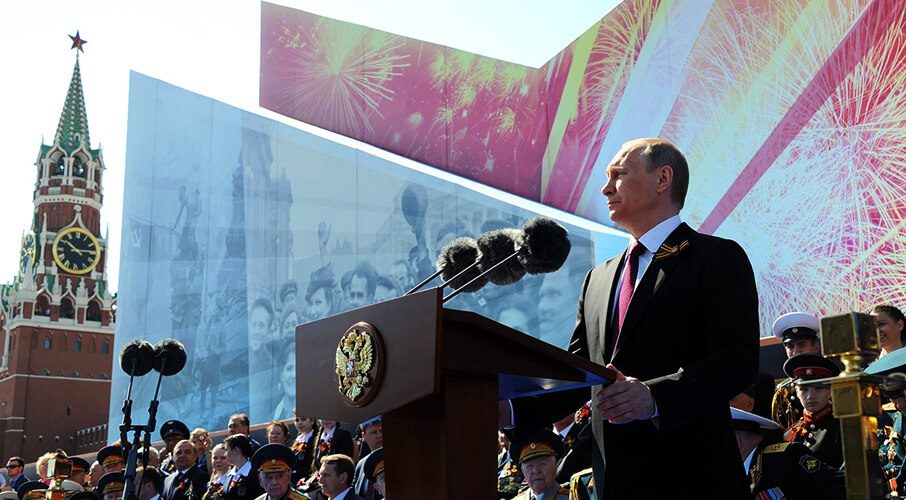 These new developments signal that Mr. Putin remains very much intent on pursuing an illiberal course for Russia, writes Aurel Braun.
These new developments signal that Mr. Putin remains very much intent on pursuing an illiberal course for Russia, writes Aurel Braun.
By Aurel Braun, January 16, 2020
At the age of 67, and in his fourth presidential term, Vladimir Putin takes enormous pride in his physical fitness, but nonetheless, there has been speculation about succession. Yet, he has been so dominant in Russian politics for the past 20 years that, despite manifestations of deep dissatisfaction, history has taught Russians to fear something almost above all else – chaos. Mr. Putin has now taken certain steps that indicate that his successor after 2024 is likely to be – himself.
On Wednesday, a day when much of the world focused on the crisis in Iran, Mr. Putin announced in his annual state-of-the-nation speech that he wants broad constitutional changes that would strengthen parliament. In a striking demonstration of his virtually unlimited power, the government of Russian Prime Minister Dmitry Medvedev resigned within hours, (although it will stay on in a caretaker function). Mr. Medvedev has to be replaced within two weeks, and Mr. Putin promptly nominated the obscure federal tax service chief Mikhail Mishustin as Russia’s new prime minister.
Essentially, Mr. Putin proposes nothing less than a basic change in the formal balance of power. He wants the parliament to have a greatly increased role, emphasizing the priority of domestic legislation, with the State Duma – the lower house of parliament – to be given the power to name cabinet ministers and the prime minister, prerogatives currently reserved for the president. Yet, Mr. Putin also insisted that Russia would remain a strong presidential republic where the president could dismiss the prime minister and the cabinet and would still have power over military matters. He is also boosting the power of the state council, which he heads, and may change the power of the judiciary. Given the fundamental changes, Mr. Putin declared that the country’s constitution would have to be amended, and consequently, Russia will hold a plebiscite.
There is little doubt that Mr. Putin will get his constitutional amendments and we are likely to see the position of the prime minister emerge much stronger. Since Mr. Putin is limited constitutionally from continuing as President when his latest four-year term expires in 2024, he will thus have the option of moving to a powerful prime ministership. The model for this might be what another illiberal leader has done to make the job measure up to his stature and ambition, Recep Tayyip Erdogan, who changed the Turkish parliamentary system of government into an executive presidency, which he assumed himself.
Moving to a powerful new position as prime minister (or conceivably staying as head of a greatly strengthened state council) would not violate current presidential term limitations, but would allow Mr. Putin to wield power formally, unlike the time he assumed the prime ministership and had to exercise influence informally through an institutionally unwieldy mechanism.
Perhaps the most important question relates to timing. As Mr. Putin seems to enjoy popular support at home and unprecedented international success in Syria and elsewhere, he nonetheless faces a constellation of domestic and external issues. Domestically, the tacit social contract that was meant to deliver continued economic growth and an improving standard of living in exchange for the political acquiescence of the population may not be entirely unravelling, but is certainly increasingly frayed as Russia’s unidimensional and corrupt economy stagnates. Add to this a huge demographic problem in which very low birth rates endanger both economic development and political stability. And in his speech, Mr. Putin mentioned the pivotal need to increase birthrates and promised urgent financial incentives for Russians to have more children.
Russia faces new uncertainties in foreign affairs as reliable and predictable interlocutors such as Germany’s Angela Merkel leave the scene and the unpredictable U.S. elections loom large. With the flood of oil and natural gas on the market, Russia’s energy leverage is diminishing, and with NATO significantly increasing its armed forces expenditures, Russia’s military position looks much less rosy. Mr. Putin provocatively boasting in his speech that Russia is leading the global arms race rather than playing “catch-up” is also significant.
These new developments, overall, thus signal that Mr. Putin remains very much intent on pursuing an illiberal course for Russia. Although he may not view himself as immortal, he believes and wants to ensure he is indispensable.
Aurel Braun is a professor of international relations and political science at the University of Toronto and an associate of the Davis Center at Harvard University. He is also an MLI author.




